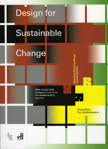David Stairs
“The ground just reached right up and smacked me in the head.” Etho, age 5
Kampala, Uganda, East Africa
When Robert Frost wrote, “Something there is that doesn’t love a wall,” he was thinking of gravity; it tends to knock walls down. To one coming from as flat a land as exists on earth, which is not to say Bonneville Salt Flat flat so much as Walmart Parking Lot flat, the ground underfoot in the tropics could be covered by the same dictum. It is so uncommonly, disconcertingly uneven, someone out there must not like it.
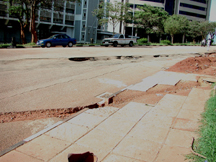
Many are the rationales for this problem, the most common being “political corruption,” or the idea that someone’s on the take, which is why potholes don’t get filled. To an extent this is justifiable. The roads and walks are horrible, and yes, many people are on the take, but there must be another, likelier reason.
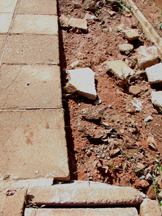
My candidate for main culprit is water. I’m not intending to let the corrupt politicos off the hook too easily here, merely to give credit where it is most appropriately due. When the skies open up in Kampala, which is frequently, freshets gush rivers of mud from hillsides and streets run red brown with silt. Temporary lakes form in otherwise unassuming depressions. The effects on pavement are utterly destructive.
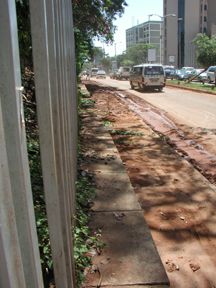
Potholes, the subject of an assiduous patch crew back in Mt. Pleasant, Michigan, open overnight, and rapidly grow, like supercancres to gaping, axle-bending chasms. A unique method of weave-driving results, with a burgeoning number of cars, trucks, and taxis participating in the awkward ballet. A Kampala radio station recently offered $500 to anyone who could identify a stretch of road in the capital that was pothole free. No winner; no surprise.

In a society where walking is more common than driving, the effects on walking are to make one much more attentive to where one is stepping. With open sewer grates actively competing with upended paving stones for greatest pedestrian hazard, one does not need a pothole to break one’s leg in. Save those for the zebracrossings.
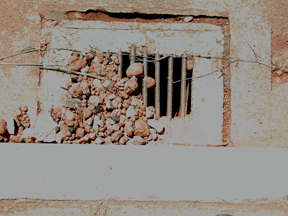
Which brings us to the most common question of all, “Why don’t they do something about it?” If by “they” one means those ever-present corrupt officials, you’ve answered your own query. If people in general are meant, then perhaps they are working hard enough already to make ends meet and don’t have more time to address the problem. In a place where the sewers are clogged by torrential downpours, leading to flooding, overflowing, and serious erosion, one might as well ask, “Why don’t Americans stop driving big wasteful cars that cause global warming and increased tropical rainstorms?”
See what I mean? Might better take it up with the Rain Gods, and make sure you walk with one eye on the ground. In a place where one must literally “watch your step,” survival’s just a level curbstone away.
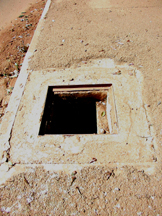
David Stairs is the founding editor of Design Altruism Project.






